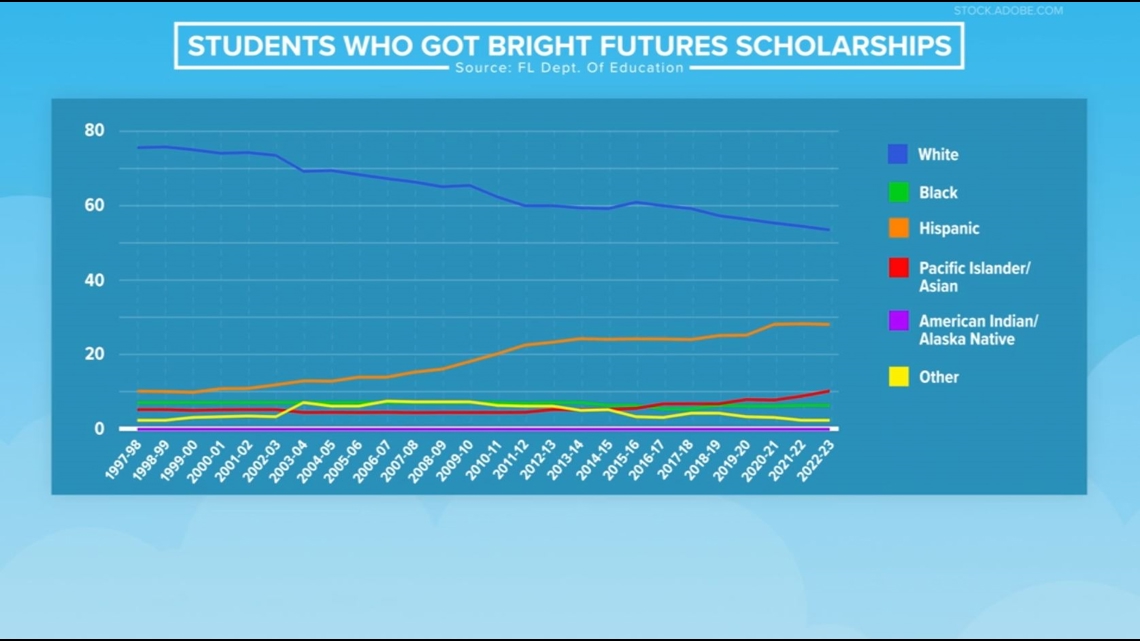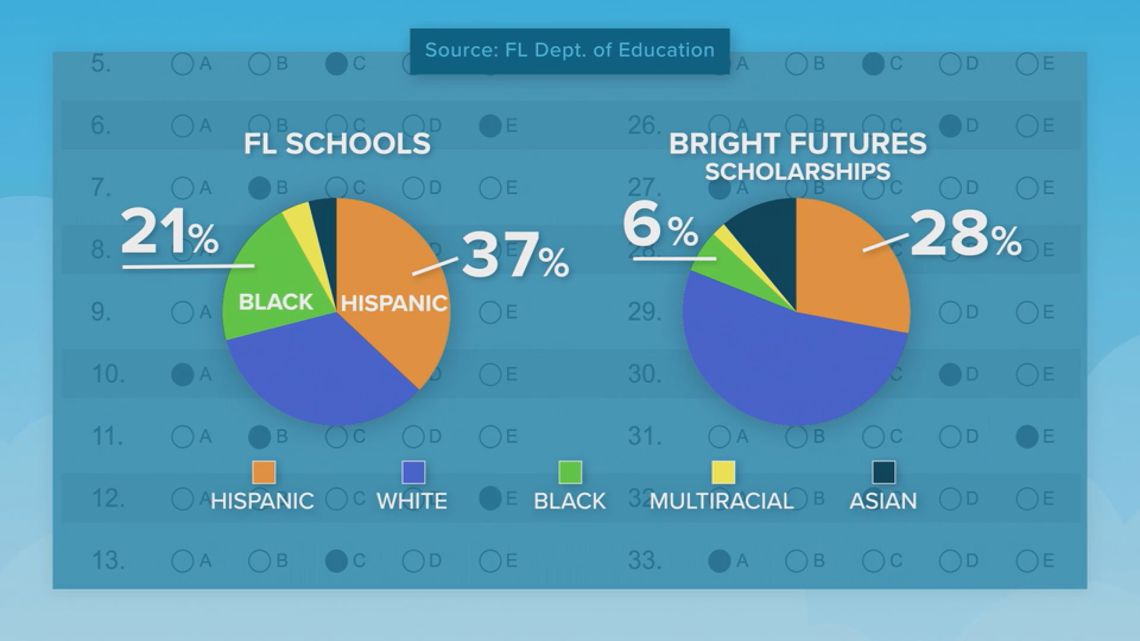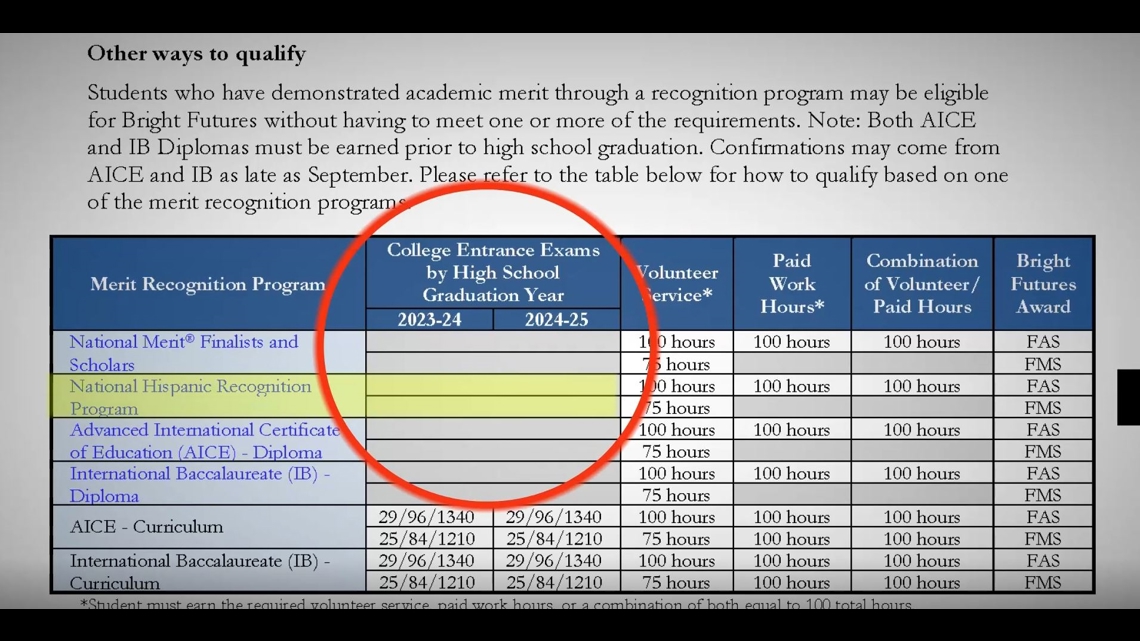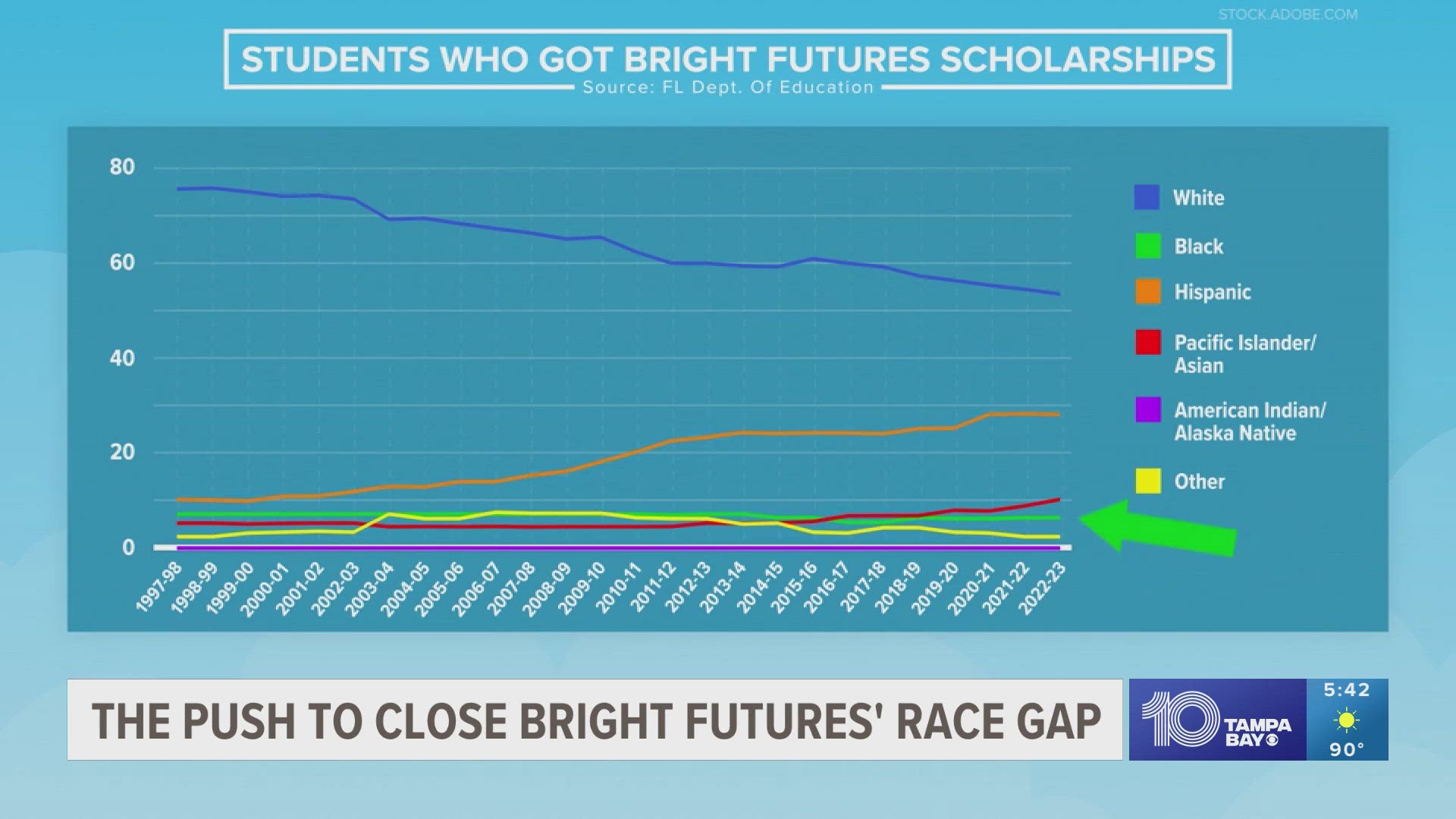A state senator is joining the push to take action after seeing what 10 Investigates uncovered about Florida’s Bright Futures Scholarship Program: There’s a racial inequality written into Florida law.
“If we want to keep the best minds in Florida, this is the right thing to do,” said State Senator Geraldine Thompson, an Orange County Democrat representing District 15.
For 24 years, Florida law has given certain students different standards to qualify for Bright Futures scholarships, depending on their race.


Sen. Thompson told 10 Investigates she wants to change that law after seeing our investigation.
“The people who play the lottery -- and it's the [Florida] Lottery that funds the Bright Futures scholarships -- those tend to be Black and Brown low-income people. And you would think that those people should benefit from the dollars that flow into the lottery and are available through Bright Futures,” she said.
10 Investigates found out the future is not equally bright for all students. There’s a persistent racial gap when it comes to who gets those scholarships.


The percentage of Hispanic Bright Futures recipients has tripled since the scholarship program started.
Meanwhile, the percentage of Black students getting scholarships has remained stagnant over time. For nearly three decades, it’s never been more than 7%.
10 Investigates created our own database showing who’s getting Bright Futures Scholarships and how much that program has cost over the years.
The latest state data shows 37% of students in Florida public schools are Hispanic. They get 28% of Bright Futures scholarships.
That same data shows 21% of students in Florida schools are Black. They get 6% of the scholarships.


10 Investigates reported in May that a state law passed in 2000 may be partially to blame.
Out of the five College Board National Recognition Programs, including the National African American Recognition Program, only students in the National Hispanic Recognition Program get their test score requirements waived.


We reported last month that the former state Senator who introduced that bill 24 years ago is now calling for it to change.
“That should have been corrected a long time ago. No, the legislature needs to look at these numbers and fix it,” said Former State Sen. Ron Klein.
State Representative Dianne Hart told us last month she’s working on writing a bill to expand Bright Futures’ minimum test score exemption to include students in the National African American Recognition Program.
“That’s a no-brainer. Why not allow Black children that opportunity as well?” said the Hillsborough County Democrat, who’s running for reelection to continue representing Dist. 63.
Now, state lawmakers running for reelection in both chambers say they’re on board.
“I think that when that was initially put in place, it was designed to attract more Hispanic students -- a greater diversity of people benefiting from Bright Futures. And, probably, as an oversight -- I'm going to assume that it was an oversight -- the same recognition was not given to African American students. So, I think that that is something that definitely needs to be revisited,” said Sen. Thompson.
If a bill gets approved by the state legislature and governor, the soonest it could take effect would be the summer of 2025. That means the Class of 2026 would be the first to feel its impact.

